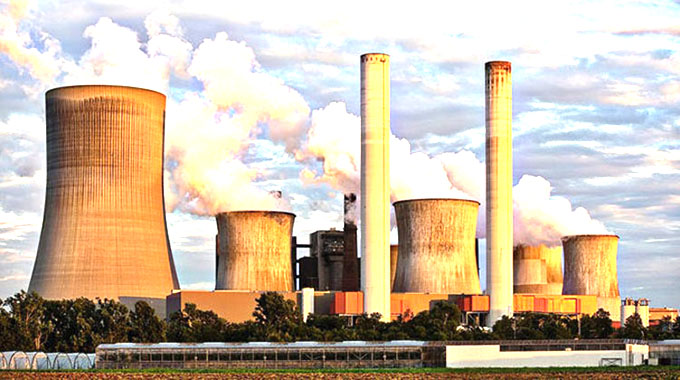Aussie firm lauds Govt support for oil, gas project

Golden Sibanda
RIDING on extensive Government support, Australian firm Invictus Energy has made huge strides towards potential discovery of oil and gas deposits in northern Zimbabwe’s Mashonaland Central Province, which would represent a massively transformative breakthrough.
Usage of oil and gas, on which some economies (including in Africa) are wholly dependent, is not just limited to transport, heating and electricity.
Apart from being a crucial energy source, the two are also widely used in pharmaceuticals, fertilisers, solvents and plastics. The world’s economy as well as its survival are totally dependent on the production and consumption of these two commodities.
The rapid progress in the test drilling for oil and gas comes as the Government is already targeting to grow the mining industry from a US$2,7 billion economy in 2017 to a US$12 billion industry by end of 2023, itself a major stepping stone towards achieving the national vision of an empowered upper middle-income society by 2030.
Invictus Energy managing director Scott MacMillan confirmed yesterday saying early indications in the firm’s Upper Angwa (top layer of the geological formation) primary target were highly encouraging and had proven a conventional working (petroleum) hydrocarbon system in Zimbabwe’s Cabora Bassa Basin.
The basin encompasses the Mbire and Muzarabani drill target locations.
Invictus said the early indications were an exciting development and validated the firm’s subsurface model.
Invictus, which is listed on the Australia Stock Exchange, is already drilling the first of its two planned exploration wells in Mbire and Muzarabani, the largely arid north-most tip of Zimbabwe.
The firm is currently drilling the Mukuyu-1 well site in Mbire, which has the potential for 4,2 billion barrels of oil equivalent (BoE).
In the oil industry, an oil barrel is equivalent to 158,987 litres.
As Zimbabwe sits on the cusp of the potentially transformative breakthrough, given the early results from exploratory drilling strongly support the potential existence of oil and gas, Mr MacMillan spoke glowingly about the huge support the Government has rendered to the company and the project.
“The Government of Zimbabwe has supported Invictus and One gas (indigenous partner in the project) to enable us to rapidly progress the project. Since we acquired the project in 2018, we have managed to reprocess (US petroleum giant) Mobil’s data (gathered in the early 90s), shoot a large infill seismic (sub-surface sound) survey and progress to the drilling of two wells within four years, including 18 months interrupted by Covid-19.
“That is almost unheard of to be able to progress a project in a country where it has never been done before. If you look at other frontier jurisdictions in the region, some companies have had their licences for 10 plus and haven’t even shot a seismic, never mind drill a well,” he said.
This confirms the Second Republic, under President Mnangagwa’s leadership, commitment to the rallying call since the administration’s inception in 2017, that Zimbabwe is “Open for Business”.
The Government’s “open arms” policy to investment from across the globe has seen significant investments in various industries across the economy including mining, manufacturing, energy, agriculture, banking and finance, tourism, construction and services, to name only a few.
Mr MacMillan said the Government had provided support in the form of legislation-backed agreements such as the Petroleum Exploration Development and Production Agreement (PEDPA), which was signed in March 2021.
The PEDPA outlines the role and obligations of each part through the various development, production and lifecycle phases of the oil and gas project, which could create hundreds of new jobs, drive economic growth, develop local communities, shore up fiscal revenues, create new downstream industries and make the country energy secure, among others.
President Mnangagwa said during the PEDPA signing ceremony at State House last year that the agreement represented major strides “in our efforts to tap into our oil and gas deposits, which is a new territory in the country’s mining sector”.
The President also said other potential benefits of an oil and gas discovery included electricity generation, production of liquid petroleum, liquefied petroleum gas (LPG), fertiliser production and petrochemicals.
Mr MacMillan said the early signs from the drilling programme looked promising but the company still had to complete the drilling programme for the well and then run wireline logs to obtain detailed geological information and pressure and fluid samples in order to declare a discovery.
The massive support from the Government, Mr MacMillan said, assisted the company’s contractors in bringing into the country equipment and personnel to “make our project as easy as possible and helped contribute to the success”.
Apart from the PEDPA, the company has worked in harmony with the Government towards the execution of a petroleum production sharing agreement (PPSA), which details the fiscal elements of the deal to ensure benefits from the project accrue to the country and its citizens.
This will ensure the citizens receive a fair share of the resource through a stable and transparent legal and fiscal regime on which to build this nascent industry.
Further, he said the company needed to ascertain the size of the potential petroleum deposit by integrating all the data together from the well and seismic (sub-surface sound data) to determine whether the gas or gas exists in commercially viable volumes.
A working petroleum system encompasses a pod of active source rock (co-joined volume of source rock generating and expelling petroleum) and all genetically related oil and gas accumulations. It includes all the geologic elements and processes that are essential if an oil and gas accumulation to exist.
“The presence of elevated mud gas readings, fluorescence in the cuttings, elevated LWD (Logging While Drilling) resistivity and increasing background gas with depth is a positive sign as we progress through the Upper Angwa Alternations Member.
“We still have several hundred metres of drilling through our primary targets with additional potential, which will be followed by a comprehensive wireline logging programme to evaluate
results, with the aim of confirming the presence of moveable hydrocarbons in multiple zones,” said Mr MacMillan.
Invictus is opening one of the last untested large frontier rift basins in onshore Africa – the Cabora Bassa Basin – in northern Zimbabwe through a high-impact exploration programme.
The company’s principal asset is special grant 4571 located in the Cabora Bassa Basin in northern Zimbabwe, which contains the world-class Mukuyu (Muzarabani) prospect, the largest undrilled prospect onshore Africa.
The asset was independently estimated to contain 20 Tcf and 845 million barrels of conventional gas condensate (gross mean unrisked basis). Its other asset is exclusive prospecting order 1849 contains the Basin Margin play with an estimated 1,2 billion barrels of oil (gross mean unrisked) across five drill-ready prospects, which will soon be tested by the drilling Baobab-1 well.









Comments